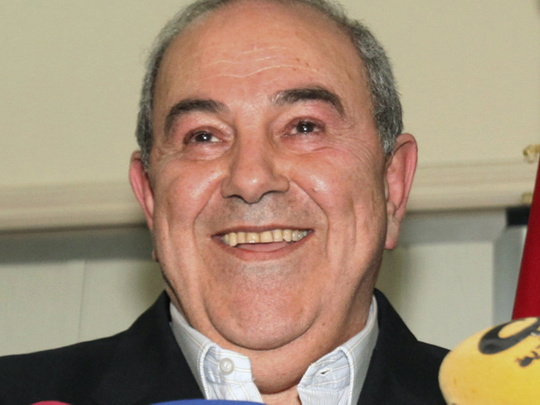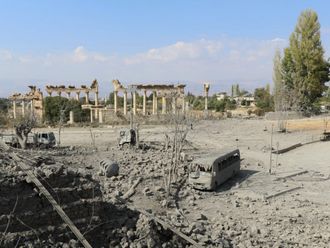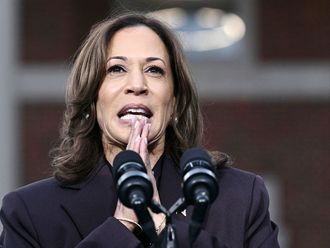
Baghdad: Iraq election winner Eyad Allawi said Saturday he was open to alliances with any faction and wanted quickly to form a government that would build strong relationships with its regional neighbours.
In Tehran, Iranian President Mahmoud Ahmadinejad predicted that Iraq would have a bright future, state media reported,
"Iraq will have a bright future and Iran would always support unity and security in Iraq," Ahmadinejad told visiting Iraqi President Jalal Talabani after the announcement of the results.
Allawi's secular, cross-sectarian Iraqiya bloc won by a two-seat margin in preliminary results released on Friday over the State of Law coalition led by Prime Minister Nouri Al Maliki, who said he would challenge the results.
With neither of the leading blocs close to the majority needed to rule alone, the tight race portends lengthy and divisive negotiations to form a government as Iraq seeks to escape years of sectarian warfare and US troops prepare to pull out.
Iraq belongs to all Iraqis
"The Iraqiya list's decision is to be open to all powers starting from the State of Law headed by Al Maliki," Allawi said at a news conference.
"Iraq does not belong to anyone or any party but it belongs to all Iraqis."
"We hope ... to form the government as quickly as possible. A government that is capable of providing security and to offer the appropriate services to its people," he said.
But perhaps signalling the difficulties ahead, Allawi said the road to a new government led through Iraqiya, an apparent reference to Al Maliki's declaration on Friday night that he was on his way to forming the biggest bloc in parliament.
"The Iraqi people chose the Iraqiya to be the base to start talks with the other parties according to the constitution," Allawi said.
Officials with Maliki's coalition and from the third-place finisher, the Iraqi National Alliance, a bloc with close relationships with Shiite neighbour Iran, have said they are working towards a merger. The two combined would hold 159 seats, close to the majority needed to form a government. INA includes the Sadrist political movement of anti-American Shiite Moqtada Al Sadr, who is studying in Iran and is shaping up to be the new kingmaker of Iraqi politics.
Al Maliki's coalition will ask a court to order a manual recount of ballots, a spokesman said Saturday.
"We are wary of the results announced by the electoral commission," government spokesman Ali Al Dabbagh said in remarks broadcast on state television yesterday.
"We have information about cases of fraud ... in both Baghdad and Mosul, and we are determined to bring [court] challenges in the coming days, to demand a recount of the votes, especially in the cities of Baghdad and Mosul," Al Dabbagh said.
While Al Maliki and the INA are seen as having close ties to Iran, Allawi is viewed as having better relations with Arab states. At one time he was highly critical of Tehran for supporting Shiite militias in Iraq, but is reported to have sought to mend fences.
Allawi said yesterday that the new government should work on strengthening political and economic ties with its neighbours and end long-running disputes over borders with countries such as Iran and Kuwait.
Welcome change
Meanwhile, Iraq's neighbours welcomed the results. "These results are very encouraging," said Khaled Al Dakhil, Saudi politics lecturer at King Saud University.
"It seems to have brought about a restoration of balance within the Iraqi political scene. But the concern that Iraq turns into a new Lebanon is still there as many parties remain heavily supported by regional powers," he added.
"We are seeing a more and more secular rather than sectarian Iraq," UAE -based analyst Abdul Khaleq Abdullah said. He added the results showed a waning Iranian influence although Tehran remained a "formidable force" in the country.
"I think sectarianism breeds violence, tension, instability," he said. "An unstable Iraq is a big headache for the GCC (Gulf Cooperation Council) and the rest of the Arab world. The more stable Iraq is, the better off we are."












